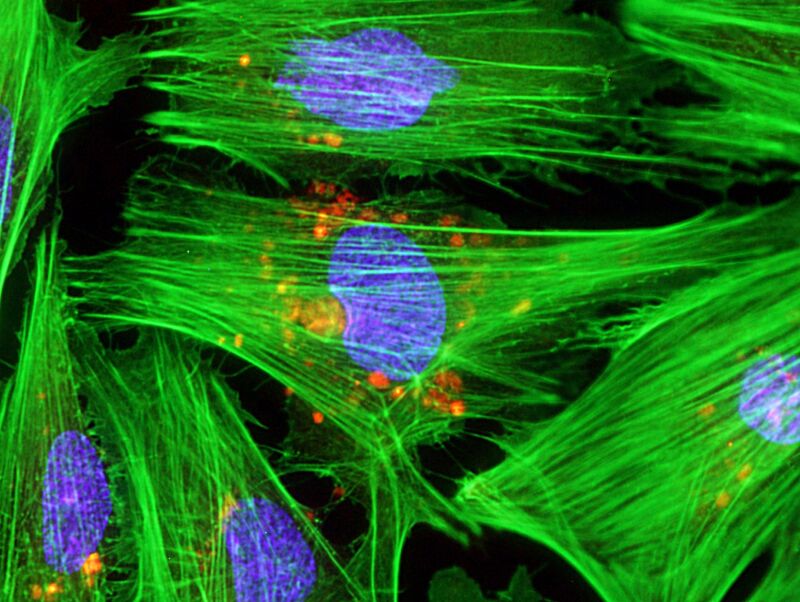Source: Ars Technica

Enlarge / A fluorescent image of cardiac muscle cells in culture. (credit: Douglas B. Cowan and James D. McCully, Harvard Medical School)
Coronaviruses spread primarily through material released when we breathe, and they cause respiratory symptoms. And SARS-CoV-2, with part of its name coming from "severe acute respiratory syndrome," didn't appear to be an exception. But as time went on, additional symptoms became clear—loss of smell, digestive-tract issues—and these weren't likely to be due to infection of the respiratory tract. And over time, what also became apparent is that the symptoms didn't necessarily fade when the virus was cleared.
As we've studied the virus more, we've learned that the protein it uses to latch on to cells is present in a lot of different tissues in the body, suggesting that a wide variety of different effects could be the direct product of infections of the cells there. This week, the effect that seems to be grabbing attention is heart problems, spurred by a Scientific American article that (among other things) considers the stories of professional and college athletes who have been infected. That was followed by a report that roughly 30 percent of college athletes who've contracted the virus end up with inflammation of the heart muscle, called myocarditis—a number that ESPN is now saying is an accidental exaggeration.
Both reports are heavy on anecdote, but this is not a new thing; ESPN had reported on myocarditis in college athletes back in early August. And, more significantly, the scientific community has been looking into the issue for months. So far, its conclusion is that there are likely to be heart complications, even in patients who had mild COVID-19 symptoms. But the long-term implications of these problems aren't yet clear.

